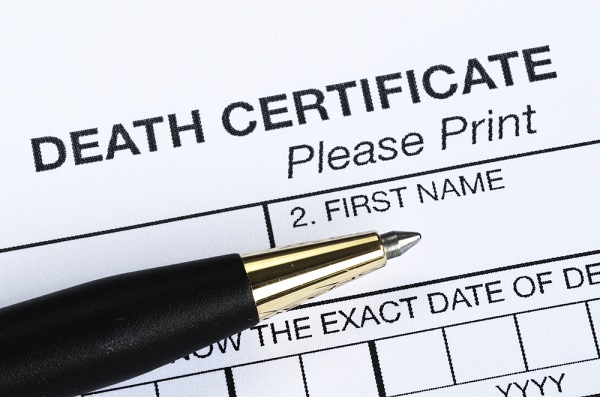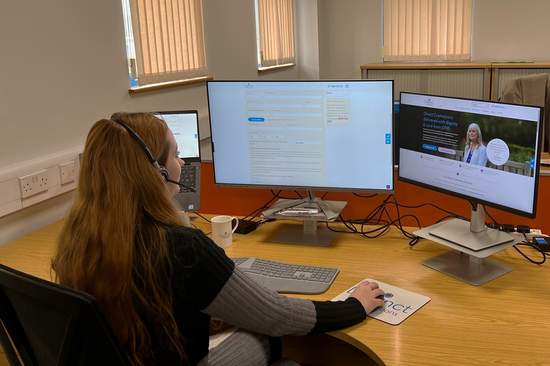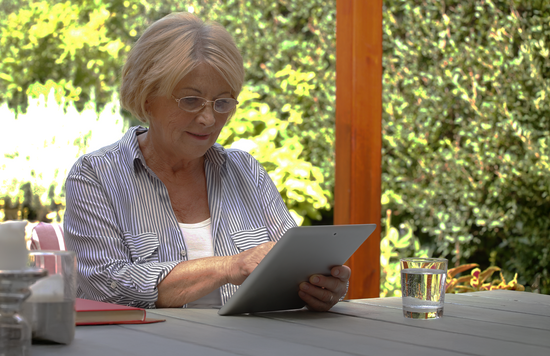Yes, before a funeral can take place, you must have a death certificate and a certificate of burial or cremation, commonly known as the "green form" given after registering the death, which is necessary for funeral arrangements.
You can begin to make funeral arrangements, and the funeral provider can pick up the deceased and take them into their care, but without these essential documents, a funeral - whether it's a burial, cremation, or direct cremation - cannot take place.
Any delay in obtaining a death certificate can lead to a postponement of the funeral and may result in fines. If you encounter delays in registration, promptly contact the local register office for guidance. Seeking assistance from a funeral service provider, such as Distinct Cremations, can also help navigate these challenges efficiently and ensure a smooth process.
A death certificate is a document you obtain after registering a death in the UK. The death certificate is an essential document required before arranging any type of funeral.
A death certificate facilitates matters such as estate settlements, pension claims, and insurance payouts, serving as a vital document for government agencies. This comprehensive document includes details such as the deceased's full name, date, and place of death, along with their age, occupation, marital status, and, if known, the cause of death, ensuring transparency and aiding in legal proceedings.
In the UK, death registration, overseen by local registrars, must occur promptly within specific deadlines: five days from the death in England, Wales, and Northern Ireland, and eight days from the death in Scotland. Failure to adhere to these deadlines can lead to complications in funeral arrangements and potential legal ramifications.

While you cannot set a date for the funeral until the death has been officially registered, you can certainly initiate preliminary funeral arrangements. This allows you to begin the process of honouring your loved one's memory and preparing for the upcoming funeral service.
Before registration, there are several important tasks you can handle to streamline the funeral planning process. Firstly, you can research and select a reputable funeral provider who can guide you through the necessary steps and offer support. Additionally, you can start considering the type of ceremony you want, whether it's a direct cremation, a traditional funeral service, or a non-religious gathering. Discussing your preferences with the funeral provider can help ensure that your wishes are understood and accommodated.
It's understandable that navigating funeral arrangements can feel overwhelming, especially amidst the grief of losing a loved one. If you find yourself unsure about where to begin or have any concerns during this process, don't hesitate to reach out for guidance and support.
Our team at Distinct Cremations are here to assist you every step of the way, offering compassionate guidance to help you create a meaningful and dignified farewell for your loved one. Give us a call on 01543 211997 if you need assistance or have any questions.
Here's a step by step process of how to obtain the death certificate.
Once the death has occurred, you will need to have the death confirmed by a doctor. The doctor will then issue a Medical Certificate of Cause of Death. If the death was unexpected or suspicious, the death will be referred to the coroner. The coroner will advise you on your next step.
You can obtain the death certificate by visiting any register office in the UK, but it will be quicker to use one in the area where the person died. A death certificate cannot be obtained online. As there are different procedures for obtaining death certificates in England and Wales, Scotland, and Northern Ireland, your local register office will be able to provide you with accurate information and guidance. Find your local register office here.
Some register offices require you to make an appointment to obtain your death certificate and in some districts you can complete this over the phone. A relative, a person present at the death or a person arranging the funeral are all legally able to register the death.
The following information is required to obtain a death certificate: the full name and surname, date and place of birth, occupation (even if retired), address and Medical Certificate of Cause of Death. In the case of a married person, the full name and date of birth of their spouse, and their occupation is also needed.
Obtaining the death certificate is free, although you will have to pay for any additional copies. The prices for death certificates vary, depending on where in the UK you are based. In England and Wales, it’s £11, £8 in Northern Ireland and £10 in Scotland.
Processing times for obtaining a death certificate can fluctuate based on the workload of the register office. Often it takes no longer than 30 minutes. However there are situations where you might have to wait a few days.
It's easy to get a little overwhelmed at the sight of all the funeral paperwork that needs to be completed and all the jargon that you might encounter.
So here are a few quick definitions to make things easier:
| Paperwork | Purpose | More information |
|---|---|---|
| Medical Certificate of Cause of Death | This is the certificate which provides clarity on the cause of death, enabling the deceased’s family to register the death. | If the cause of death is clear this certificate will be issued. If the cause of death is unclear, the death will be referred to the coroner. Following a post-mortem, the coroner will fill out and send the necessary forms to the register office and release the body for a funeral. |
| Death certificate | A death certificate is a document that you obtain after registering a death in the UK. It states the date, place of death, and name of the deceased. | When the death certificate is issued, a Green Form is issued, which is what is required to arrange a funeral. Read more about how to register a death. |
| Certificate for Burial or Cremation / Green form | Authorises the burial or cremation. Without this form your funeral director will not be able to carry out the funeral. | This form is usually sent from the registrar to the funeral director to carry out the arrangements. Some registrars will only issue to the applicant, in which case you must give this to the funeral director. |
| Cremation 1 form | Application for the cremation of a deceased person. | If you or the deceased have chosen a cremation funeral, this form will need to be completed by the nearest relative or executor of the will. |
| Cremation 6 form | This form is for coroners to complete, to release a body for cremation. | If the death is being investigated by the coroner, the coroner’s permission will be required before the cremation can take place and this will be provided through this form. |
| Burial form | To purchase a grave or reopen an existing plot. | This form will be completed by a funeral director or the family can request one from their local council if they decide to arrange a funeral without a funeral director. |
| Order for Burial / Form 101 | Similar to a Cremation 6 form, this form is for coroners to complete to release a body for a burial. | In the event that a coroner conducts an investigation into the death, prior approval from the coroner will be necessary before proceeding with the burial. This approval will be granted via the completion of this form. |
If you have any concerns about the cause of death, you will have the opportunity to discuss this with the Medical Examiner after the Attending Practitioner (the doctor who declared the cause of death) has submitted this to the Medical Examiner.
After you’ve registered the death, obtained the death certificate and a certificate of burial or cremation, you can go ahead with arranging the funeral. The burial or cremation form will need to be completed, but if you are using a funeral provider like Distinct Cremations, we can help you with the paperwork.
At Distinct Cremations, we’re here to help you every step of the way. Our expert customer service specialists will help to point you in the right direction and provide as much support and guidance as you need throughout the process, whenever you need us, 24 hours of the day, 7 days a week.
Our highly-trained and experienced team supports families experiencing bereavement each day. With a wealth of knowledge and experience gained by supporting families, we'll guide you on what you'll need to do and help to ease your burden by liaising with any hospitals and local authorities to get all of the information needed to keep moving forward.
Want more information? We're happy to answer any questions you may have about our funeral cremations over the phone, or you can request a free guide for details about what we offer.

Want to talk through our options? If you have questions or would like some in-person support we’re just a call away.
Speak to our team
Need some time to digest the details? You can download a PDF of our guide online or get a printed copy posted out.
Get our guideBefore someone dies, getting an understanding of what to do when someone dies, can help to ease the stress and confusion that you may face. Here's a handy checklist that will be of help with the legal requirements and the overall logistics for when the time comes.
Here at Distinct Cremations, we have created a free checklist for you to download which lets you know what you need to do when someone dies.
Download our checklist below or speak to our expert team on 01543 211997 today
Download free checklistBelow are a few more resources that may help when it comes to funeral documentation and organising a funeral.

There are a number of documents that need to be completed before a funeral can take place including three different cremation forms. Our article below will detail which forms you need to complete and how our team can help.
The required funeral documents
There are legal formalities that need to be completed shortly after someone dies. It may be the last thing you want to be doing at a time of mourning, but they're a necessary step before you can make any funeral arrangements.
How to register a deathWe offer the highest level of support, but don't just take our word for it. Below are recent reviews from customers who bought a funeral with us.





